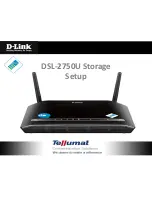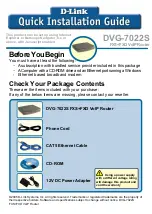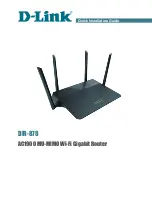
Chapter 1: Introduction
7
Access to native features on a target device
Both Native IP and DirectCommand management options provide native access to target devices
and enable an authorized user to connect directly either to the web management interface of a target
device or to the command line of a device that redirects console output to a dedicated Ethernet port.
When users are configured for target device management actions, the same permission authorizes
the user for both Native IP and DirectCommand.
The authorized user obtains authenticated access to a target device’s native features such as native
applications, integrated web servers and other proprietary interfaces that are available over IP.
Native applications are proprietary SP management applications provided by some server vendors,
such as HP InSight Manager, IBM Director and Dell Open Manage. Access to a native application
usually requires the application to be installed on the user’s workstation. Some management
applications reside on the SP itself.
Access to native functions on some SPs is through a proprietary web interface on the SP. HP iLO,
Dell DRAC and IBM RSA II SPs have a local web server running and provide a web interface that
allows administrators remote access for provisioning, monitoring and managing the server. The
web interface is accessed through a specific port number. The monitoring and management features
supported by some SPs through native web interfaces include access to the server’s serial or
graphical user interface, power control, access to sensor data and server event logs, SNMP agents
and virtual media.
DirectCommand requirements
The DirectCommand option is available only through the Web Manager. DirectCommand creates a
Java applet that runs in the background to start a secure SSH tunnel and to connect to the native
web interface on the target device. Therefore, the Java Runtime Environment must be installed on
the user’s workstation. The JRE is also a requirement for Web Manager access.
The Web Manager allows the administrator to configure up to 20 ports and associate them with
other services that may also be invoked by DirectCommand. As described in the troubleshooting
appendix in the installer and administrator guide, the administrator must take care to ensure that
local applications are not using the same TCP ports that are used by DirectConnect.
spshell menu in the MergePoint 5224/
5240 SP manager console
Manage the event log
Brings up a menu with the event log
management options
•
View event log
•
Clear event log
ssh command
sel
clearsel
•
Displays the event log
•
Clears the event log
Table 1.4: Event Log (SEL) Management Options (Continued)
Method
Option or Command Name Action
Summary of Contents for MergePoint 5224
Page 8: ...vi MergePoint 5224 5240 Service Processor Manager User Guide...
Page 10: ...viii MergePoint 5224 5240 Service Processor Manager User Guide...
Page 12: ...x MergePoint 5224 5240 Service Processor Manager User Guide...
Page 27: ......
Page 82: ......
Page 86: ...74 MergePoint 5224 5240 Service Processor Manager User Guide...
















































